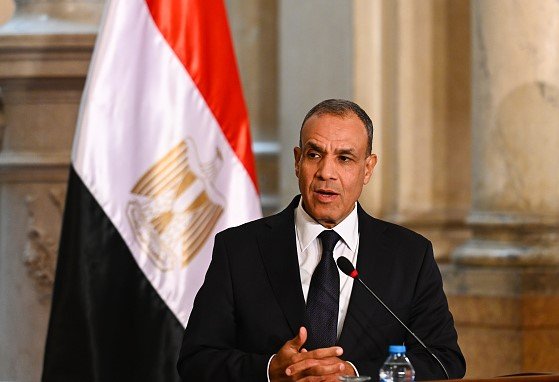Cairo backs 25-nation statement calling out Israel’s actions, doubles down on two-state solution demand
Egypt has thrown its diplomatic weight behind an international effort to end Israel’s military campaign in Gaza, calling the humanitarian crisis “intolerable” and warning against any forced displacement of Palestinians.
In a strongly worded statement released late Monday, the Egyptian Foreign Ministry endorsed a joint declaration signed by 25 nations demanding an immediate halt to Israeli operations in the Gaza Strip. The statement also blasted Israel for obstructing humanitarian aid and condemned the idea of relocating Palestinian civilians into what’s been described as a so-called “humanitarian city.”
Egypt Aligns with Global Consensus
The move signals Cairo’s deepening frustration with Israel’s military approach and aligns it with a growing bloc of countries—including Spain, Ireland, Norway, and South Africa—calling for a ceasefire.
Egypt’s language was unusually direct. Officials called forced relocation proposals “a flagrant violation” of international humanitarian law, making it clear they reject any attempt to displace Palestinians under the guise of security or logistics.
One sentence here.
By publicly backing this 25-nation declaration, Egypt positions itself as both a regional powerbroker and a vocal critic of what it sees as reckless escalation by the Israeli military.

Relocation Plan Draws Ire
Among the most controversial elements addressed in the statement was a proposed “humanitarian city” in southern Gaza, where Israel has suggested Palestinians could be relocated for their safety.
Cairo minced no words.
Egypt said the concept amounted to population transfer—an act considered illegal under international law when done by force—and warned that it could permanently alter Gaza’s demographics.
Here’s what Egypt’s foreign ministry emphasized:
-
Forced displacement is non-negotiable and must be condemned globally
-
The relocation plan undermines future peace efforts
-
Humanitarian corridors must not be used to justify mass expulsion
-
Any ceasefire must preserve Palestinians’ right to remain on their land
Egypt’s Diplomatic Balancing Act
While Egypt remains one of the few Arab states maintaining diplomatic relations with Israel, its recent tone shows a shift from silent diplomacy to open criticism.
Behind closed doors, Egyptian intelligence has been actively working with Qatar and the U.S. to broker a truce. Publicly, though, Cairo now appears increasingly comfortable criticizing Israel’s conduct in blunt terms.
One-liner here.
The shift reflects both public pressure at home and rising tensions across the Middle East, where Egypt is under scrutiny for how it handles its border with Gaza.
In fact, officials confirmed that Egypt has increased coordination with the Rafah Border crossing to allow aid trucks through—but continues to resist pressure to absorb displaced Palestinians.
Settlements and Settler Violence Under Fire
The joint statement also targeted Israel’s ongoing settlement expansion in the West Bank and growing violence by Israeli settlers—issues long condemned by Cairo.
Egypt welcomed the international criticism, saying that settler attacks on Palestinian villages and farmlands have become a “daily horror” for families trying to survive under occupation.
Short sentence here.
Officials reiterated that such actions violate U.N. resolutions and only make peace harder to reach.
Two-State Solution Still the Endgame
Amid the rising death toll and geopolitical noise, Egypt made sure to pull the conversation back to the big picture: a Palestinian state, with East Jerusalem as its capital.
Cairo called on the international community to go beyond condemnation and take tangible steps to revive a political process. That includes recognizing the State of Palestine and restoring June 4, 1967 borders as the framework for any final status agreement.
It’s not just lip service.
Egypt is pushing for an emergency session at the Arab League and has been lobbying EU diplomats to support Palestinian membership in international organizations like the U.N.
Here’s a quick snapshot of Egypt’s key demands:
| Core Demand | Egypt’s Position |
|---|---|
| Immediate Ceasefire | Backed via trilateral talks with U.S. and Qatar |
| Humanitarian Aid | Urges Israel to lift all aid restrictions |
| Forced Displacement | Rejected as illegal and destabilizing |
| Settlement Activity | Calls for international sanctions |
| Two-State Solution | Wants East Jerusalem as Palestinian capital |
Regional Pressure Is Mounting
Egypt’s move to back the 25-nation declaration is also part of a broader regional trend. Jordan, Algeria, and even non-Arab states like Turkey have stepped up public condemnation of Israeli policies in recent weeks.
One-liner.
Public anger is rising in Cairo, Amman, and across the region, making it politically costly for Arab governments to stay silent.
In this environment, Egypt appears determined to reclaim its role as a mediator—and not just a bystander—in the conflict.
